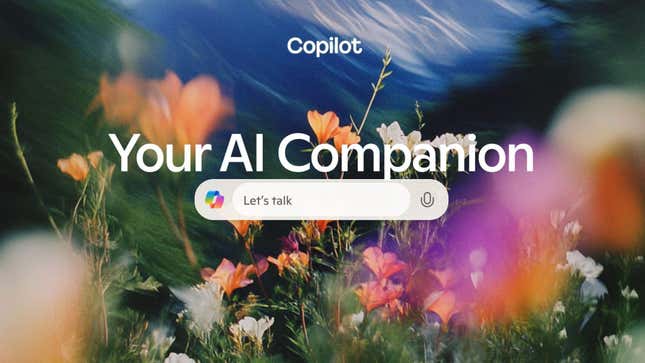
In This Story
Microsoft (MSFT-0.92%) announced an array of updates to personalize and automate its Copilot AI assistant at the company’s 50th anniversary celebrations Friday.
“Ultimately, I think there is going to be as many Copilots as there are people using them,” Microsoft’s AI chief Mustafa Suleyman said from the event at the company’s headquarters in Redmond, Washington. “Each is going to have its own style and tone and, of course, its own name. And so today, we’re taking the very first steps towards rich memory and personalization, the very foundations of an AI companion.”
Starting Friday, Copilot will remember conversations and store them as “memories” to hone its responses based on your likes and dislikes and on details about your life from the name of your dog to what you like to eat for breakfast. It will also remember your communication style — “Whether you like a formal good morning or a casual ‘What’s up?’” Suleyman said.
Users will be able to view and remove any of these stored “memories” at any time to ensure privacy.
The company is starting to experiment with giving Copilot a face with personalized animated appearances. The function is still at its very early stages, Suleyman said.
He said that a goal Microsoft has for Copilot is “to make it the easiest way to get anything done” and enhance “its ability to actually make things happen on your behalf.” Copilot will now turn into a complete personal assistant with the ability to take action on a user’s behalf across select websites to book tickets to events, make restaurant reservations, and more.
The capabilities announced, while new to Copilot, aren’t particularly new to the industry. Amazon’s (AMZN-2.87%) recently announced Alexa Plus can remember things about you and execute tasks on your behalf (such as sending invites); meanwhile, OpenAI offers personalization with ChatGPT and web-based task execution with Operator.
Microsoft’s event comes on the heels of recent rumors that the company is in the works to produce in-house artificial intelligence models — including reasoning models like OpenAI’s o1, which the company incorporated into its Copilot products earlier this year — in an effort to wean off its reliance on long-term AI partner, OpenAI.
Both Bloomberg and The Information reported last month that a number of these AI models, which Microsoft has dubbed MAI, produced results that proved competitive with rival products from OpenAI and Anthropic on accepted benchmarks. The models were also tested to see if they could power Copilot tasks currently executed using OpenAI models.